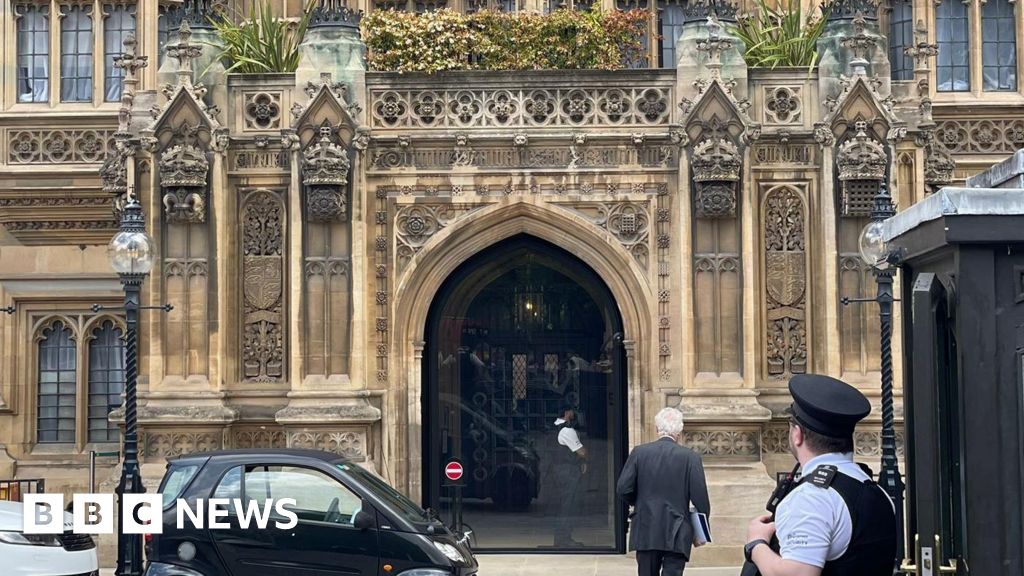A report into the construction of a new £9.6m entrance to the House of Lords has identified the errors which led to delays and spiralling costs.
In his 15-page review, Lord Morse concluded that a decision to limit building work to times when the House of Lords was not sitting was key factor in the delays.
He also said the project had been further postponed by the death of Queen Elizabeth and the subsequent coronation of King Charles, during which time work could not be carried out.
The process to upgrade the entrance began in 2023 and had been expected to take 39 weeks at a cost of £6.1m. However, it ended up being delayed by 100 weeks and costs rose by more than £3m.
In July, following complaints by peers in the House of Lords, the Lord Speaker asked Lord Morse, a former auditor of government projects, to investigate the reasons behind the delay.
In his report, Lord Morse said that in February 2022 the cost of the project had been calculated based on the assumption that building work would “proceed continuously from start to finish” and that the entrance would be closed for use.
However, the costs were pushed up when, in October 2022, a decision was made that the entrance should be kept open “at all times” when the House of Lords was sitting.
Lord Morse said the original assumption about the entrance “proved incorrect and materially increased the cost of delivery”.
He said additional costs included a redesign, which had to take place when ground surveys revealed “unknown voids” beneath the foundations of the entrance.
In September 2022 the project was disrupted following the death of Queen Elizabeth and her subsequent lying-in-state, which took place in Westminster Hall on the parliamentary estate.
The construction site was dismantled and work was paused for two weeks.
Lord Morse said such disruptions “might reasonably have been anticipated” but were “not directly attributable to the way in which the project was managed”.
He said the decision to limit major construction to times when Parliament was not sitting had the largest impact on the delays.
The entrance was reopened in December 2024, but immediately ran into problems including power supply issues and difficulties for wheelchair users.
In June and July, peers raised concerns in Parliament. Lord Forsyth described the project as “a complete white elephant and a disaster” and Leader of the House Baroness Smith of Basildon called the situation “unacceptable”.
Former transport secretary Lord Howell warned that the need for staff to manually operate the door meant Parliament was “haemorrhaging money”.
In his conclusion, Lord Morse said that security had been the “primary driver” behind the project.
He recommended future projects should be governed by a “clear framework that recognises the interdependence of security, health and safety, access, value for money and reputation”.
Lord Morse also said the project lacked an independent figure, who could balance these priorities and make decisions that were “in the best interests of Parliament as a whole”.
He said future projects should have one single, controlling figure to make such judgements.
He suggested that if such a role had existed during the project, the contract stating that work could continue while Parliament was sitting might not have been signed.





